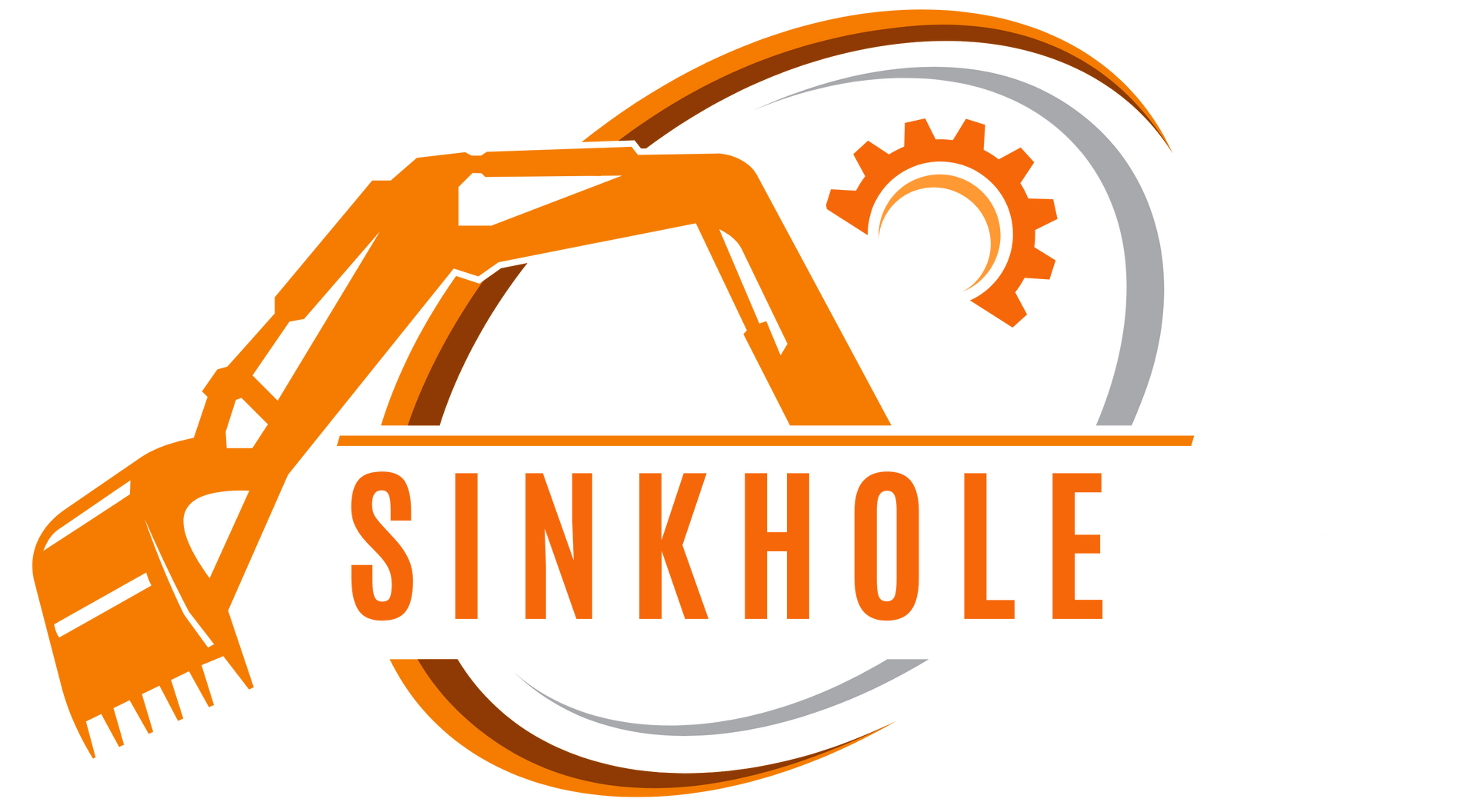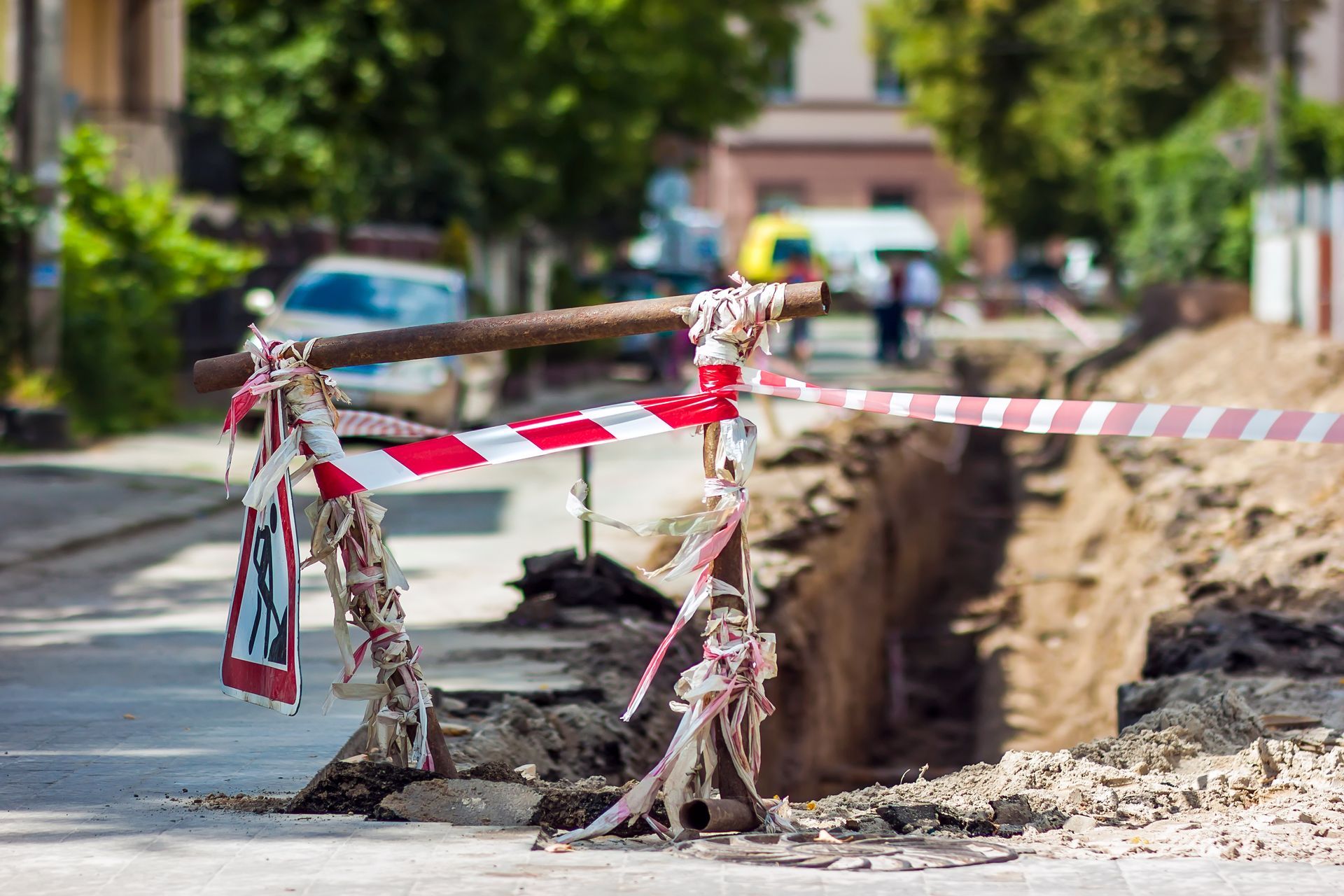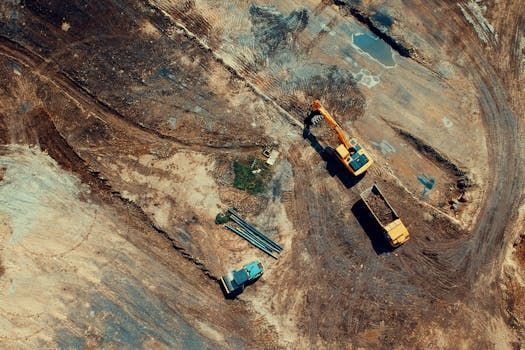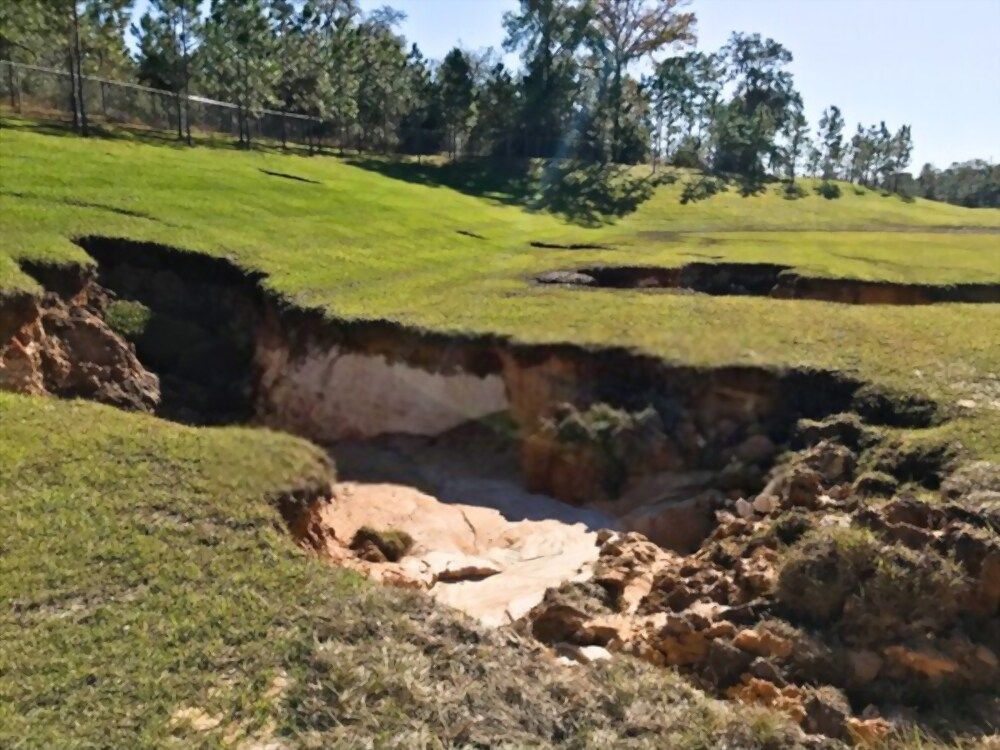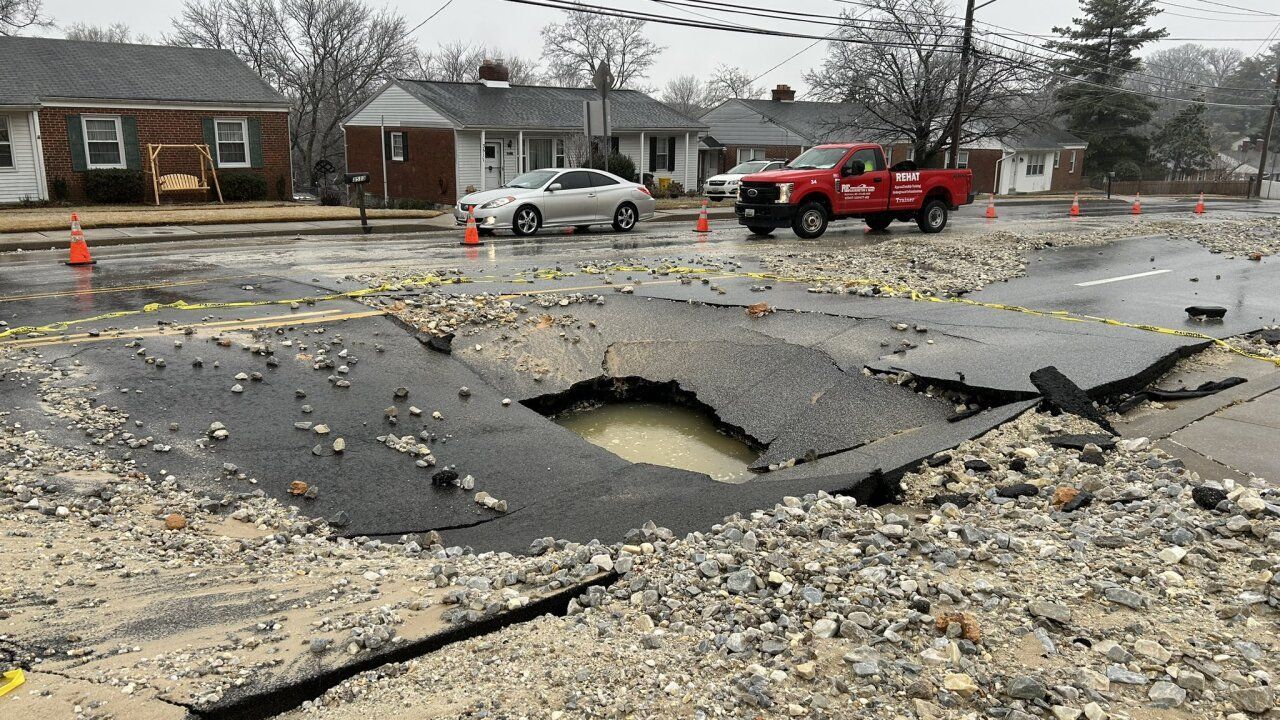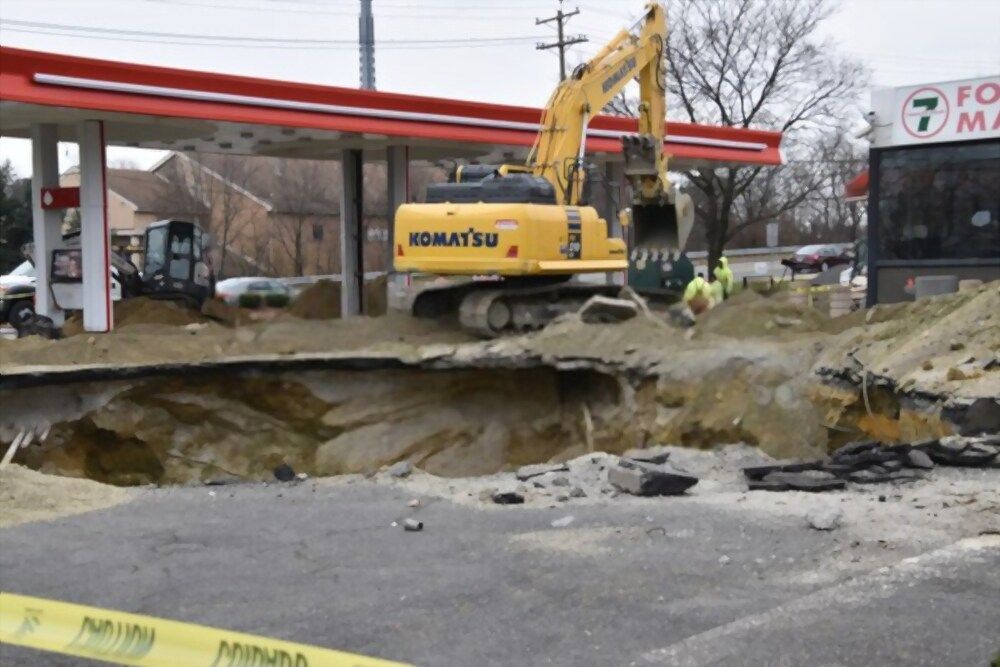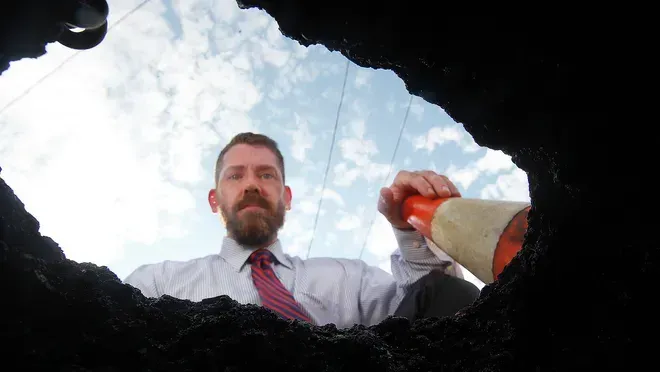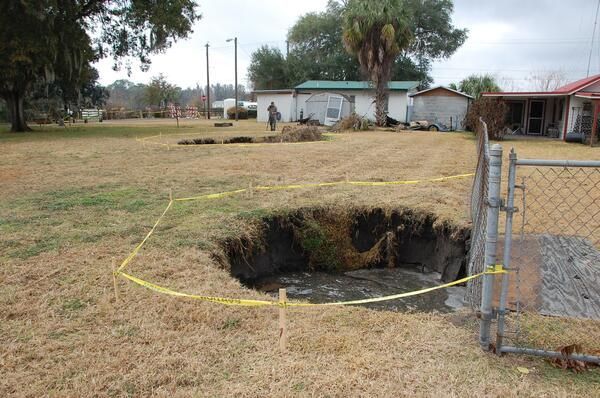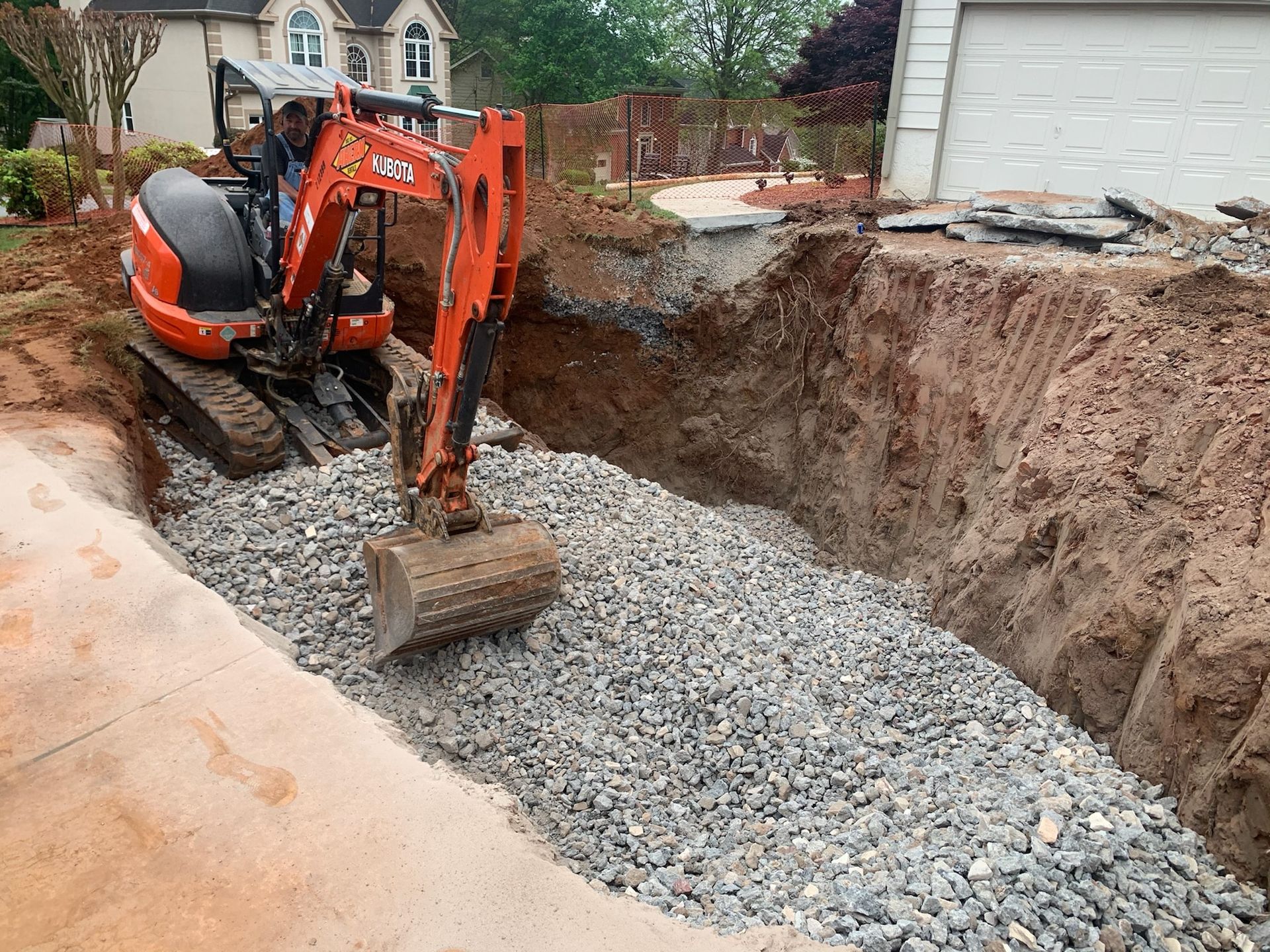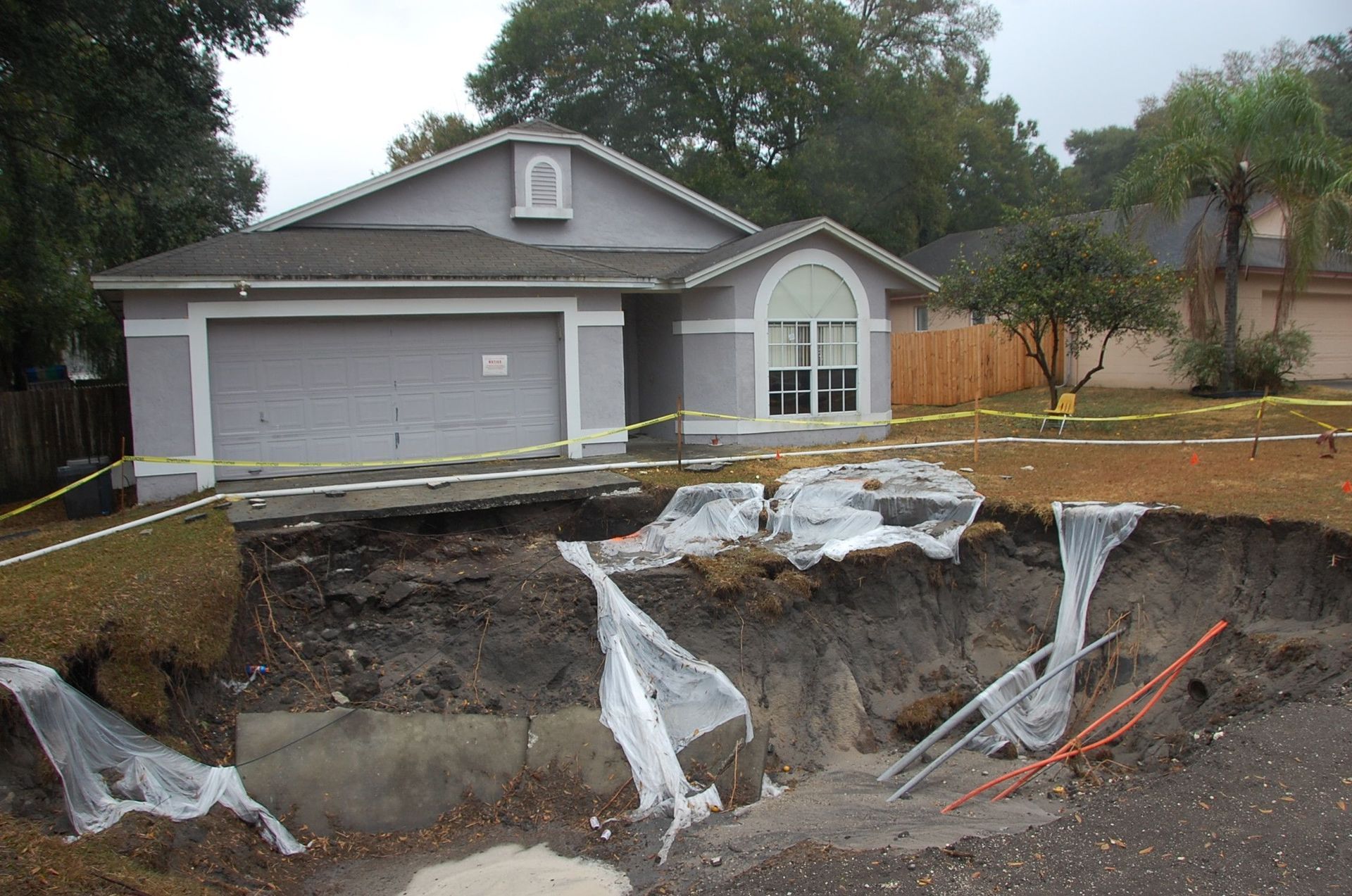Where Do Sinkholes Most Commonly Form in Atlanta?
TLDR;
Sinkholes in Atlanta most commonly form in areas with buried construction debris, poor soil drainage, and aging infrastructure. High-risk neighborhoods include Buckhead, Midtown, East Atlanta, and the northern suburbs, where both natural geology and human activities contribute to ground instability.
Why Atlanta Experiences So Many Sinkholes
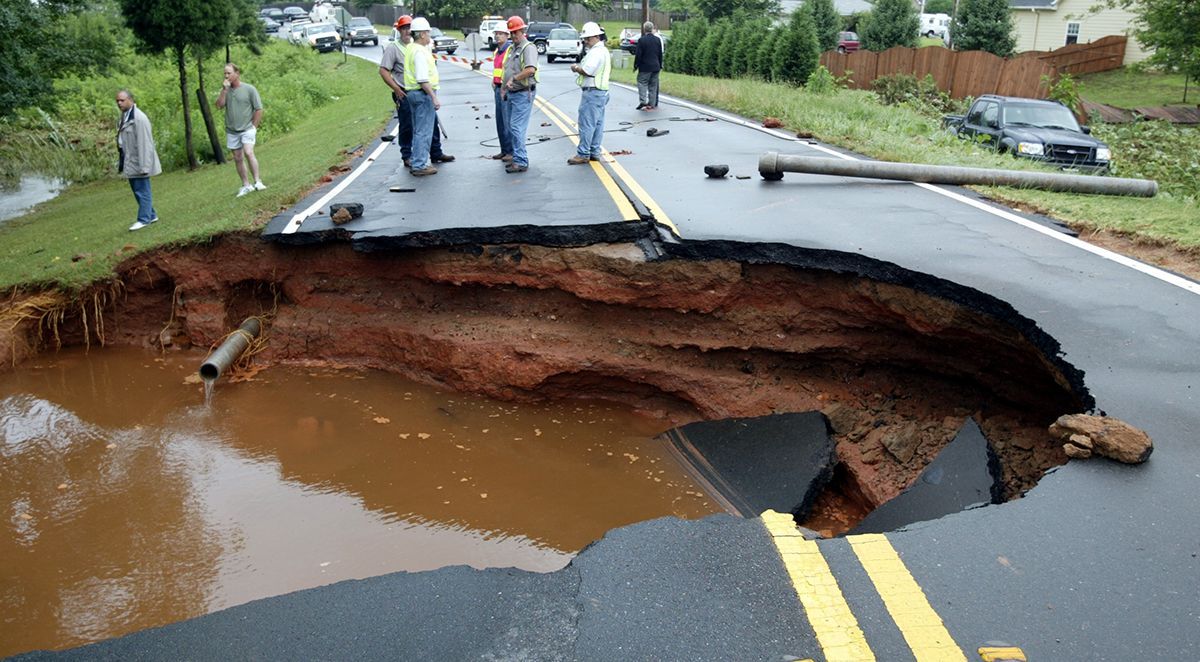
Atlanta has become a hotspot for unexpected ground collapses due to a mix of natural and manmade conditions. While much of Georgia sits on stable granite, pockets of Atlanta are built over limestone and buried debris, making them susceptible to sudden sinkhole formation. Add in decades-old infrastructure and inconsistent urban drainage, and you’ve got the perfect storm for sinkholes.
Natural Geological Factors
Some regions of metro Atlanta rest on karst terrain—a landscape formed from the dissolution of soluble rocks like limestone or dolomite. When groundwater erodes these rocks:
- Underground voids and caves form
- The surface ground becomes unsupported
- Sudden collapses can occur (called
collapse sinkholes)
Soil subsidence is another factor. In areas where water consistently infiltrates the soil, the ground can slowly sink or settle. Over time, this creates dangerous voids under driveways, yards, and even homes.
Human-Caused Factors
While geology plays a role, human activity is often the trigger in Atlanta:
- Buried Trash Pits: During the mid-20th century, builders often buried tree stumps, construction debris, and household waste under homes. As this organic material decomposes, it leaves behind empty space.
- Old Sewer and Drain Lines: Aging infrastructure rusts, collapses, or leaks, weakening the surrounding soil.
- Poor Urban Drainage: Impervious surfaces like roads and rooftops increase water runoff, leading to erosion and soil washing away beneath the surface.
Which Atlanta Neighborhoods Have the Highest Risk of Sinkholes?
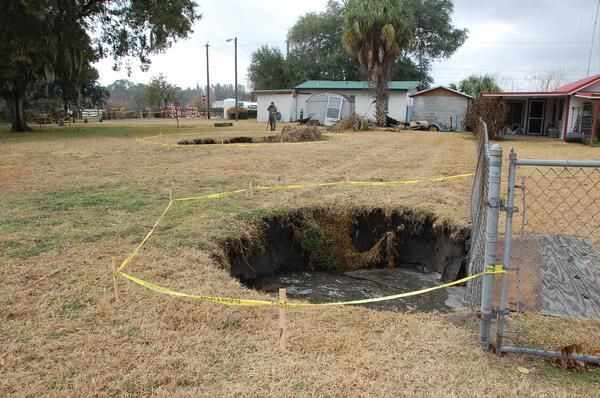
If you’re asking where sinkholes most commonly form in Atlanta, you’re not alone. Some areas consistently show up in incident reports, news headlines, and contractor repair logs like those at Sinkhole Repair ATL.
Buckhead
- Trash pits are a well-documented problem in this area
- Upscale construction on unstable fill adds risk
- Several sinkhole incidents have involved high-end residential lots and driveways
Think you might have a sinkhole?
Let our experts take a look—no charge!
Midtown & Downtown Atlanta
- Older sewer infrastructure prone to leaking or collapsing
- Dense construction amplifies water runoff
- A 2023 sinkhole shut down part of Spring Street due to a failed stormwater pipe
East Atlanta and Decatur
- Known for poor soil drainage and high water tables
- Combined with buried debris, this makes backyards and crawl spaces at risk
- Streets like Memorial Drive have experienced pavement collapses from water intrusion
Northern Suburbs (Sandy Springs, Roswell)
- Natural erosion from the Chattahoochee River basin
- Extensive suburban development changed water flow patterns
- Subdivisions with older lots often see landscape sinking or settling—issues that can often be prevented with proper soil stabilization.
Signs You May Have a Sinkhole on Your Property
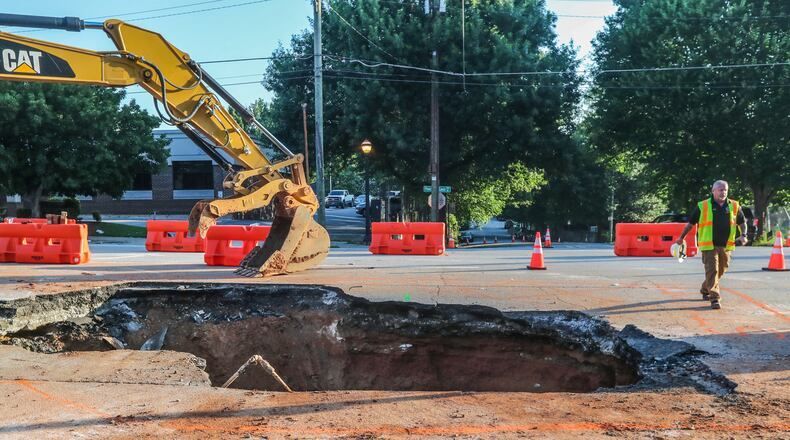
Spotting a sinkhole early can mean the difference between a quick repair and structural disaster. At Sinkhole Repair ATL, these are the most common warning signs we inspect for:
Ground Surface Clues
- Circular depressions in your lawn
- Sunken patches that feel soft underfoot
- Unexpected puddling after rain, even when it hasn’t rained much
Structural Clues
- Cracks in your foundation or driveway that keep growing
- Doors and windows that no longer close correctly
- Slanted or uneven floors inside the home
Utility Warning Signs
- Water bills that spike for no clear reason
- Visible cracks or shifting in sewer or water lines
- Strange bubbling in toilets or drains after heavy rain
How to Prevent Sinkholes from Forming Near Your Home
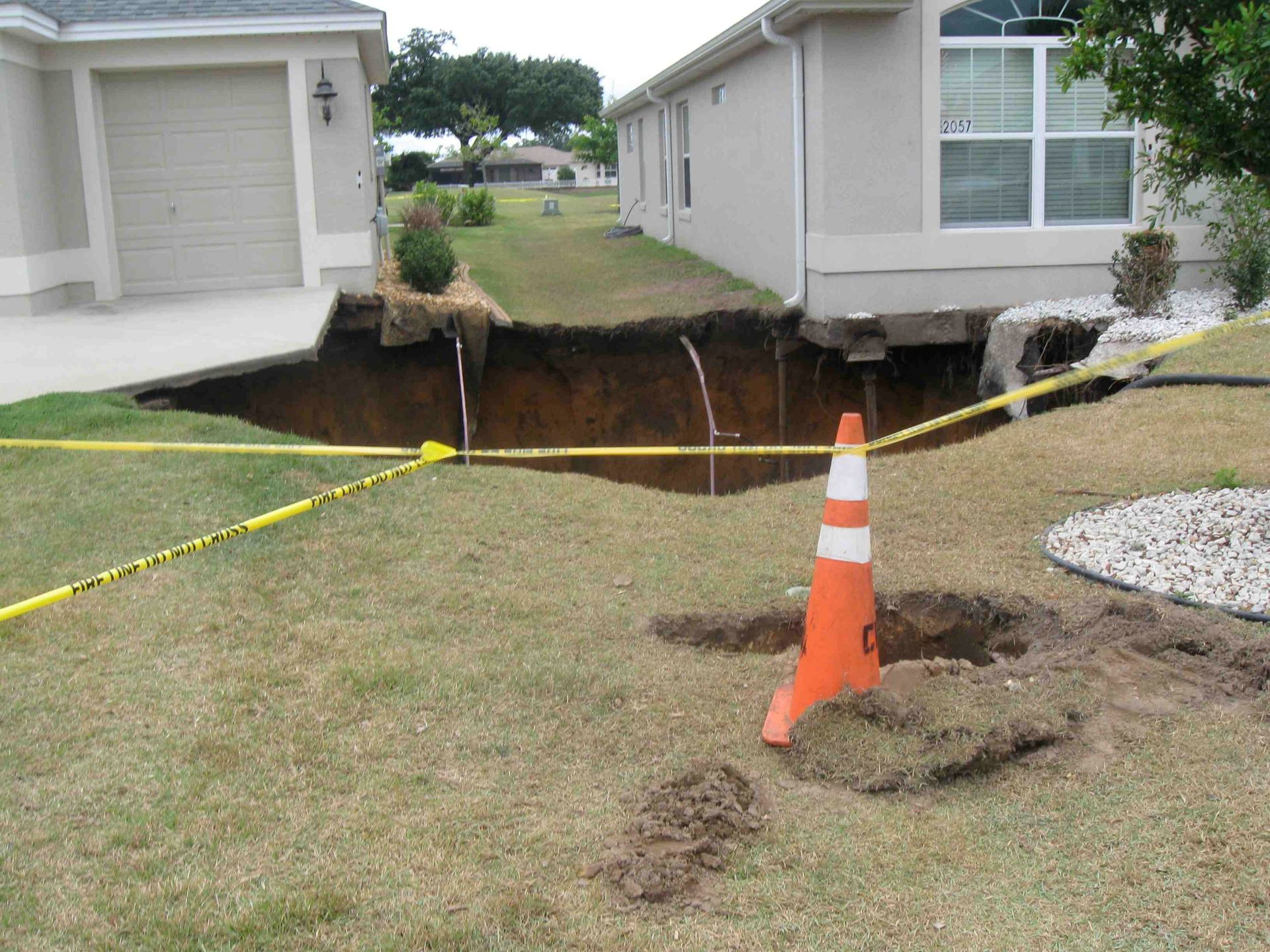
Preventing sinkholes requires vigilance, especially if you live in or near high-risk zones. Here’s what you can do to reduce your risk:
Maintain Proper Drainage
- Keep gutters and downspouts clean
- Regrade your yard to move water away from your foundation
- Install French drains or dry wells in soggy areas
Avoid Overloading Vulnerable Ground
- Don’t build heavy structures like sheds, patios, or pools over known fill areas
- Consult with a soil engineer if you're unsure about your lot's history
Schedule Regular Foundation Inspections
- Every 2–3 years, especially if you’re in an older neighborhood
- Look for early signs of structural damage
- Contact Sinkhole Repair ATL for professional sinkhole inspection & detection and geotechnical evaluations in Atlanta.
Think you might have a sinkhole?
Let our experts take a look—no charge!
What To Do If You Suspect a Sinkhole
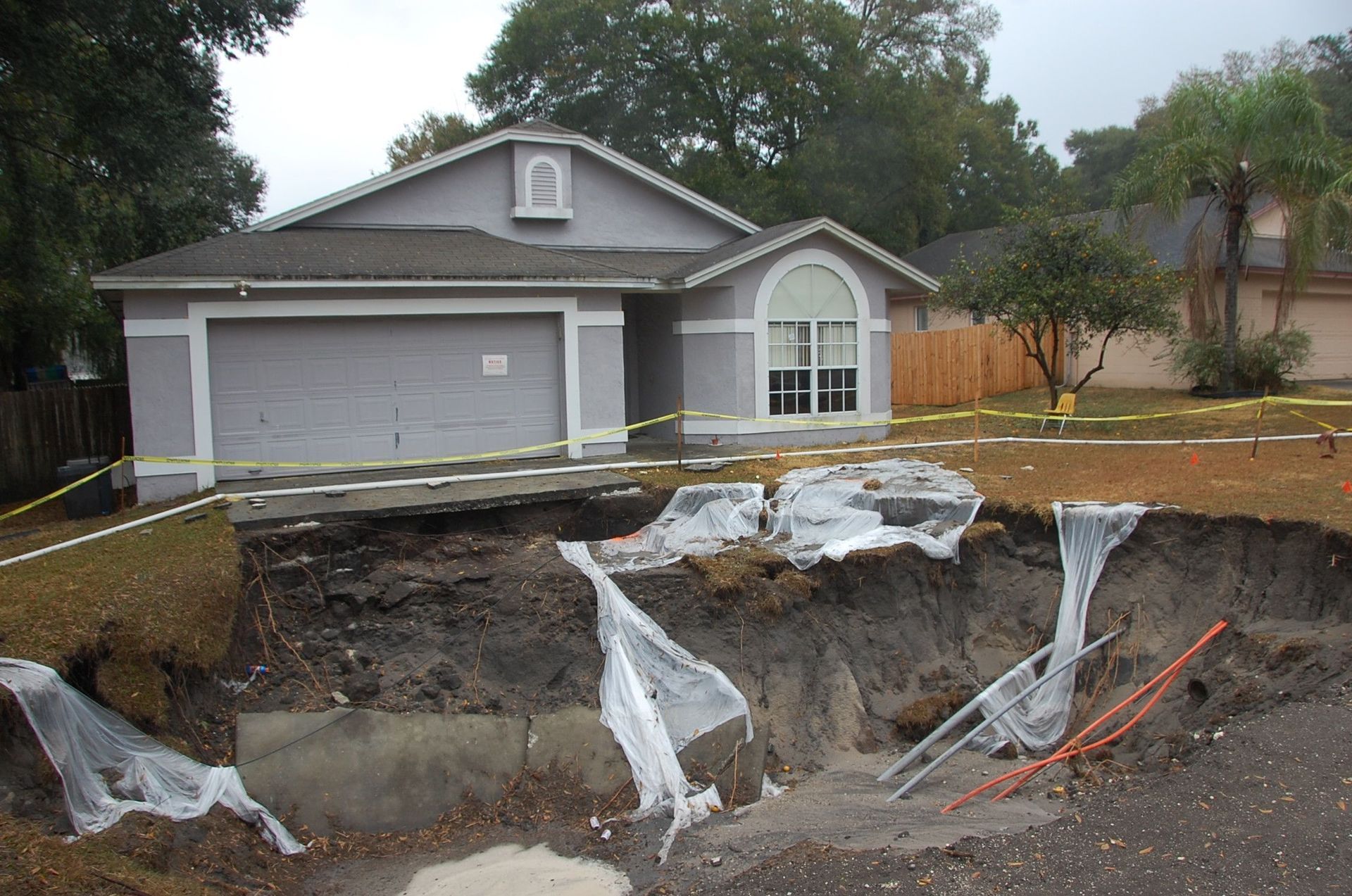
A sinkhole is not a DIY problem. If you think your property is affected, take these steps immediately:
Immediate Steps
- Stay off the affected area
- Prevent children or pets from going near
- Do not attempt to fill it with soil or gravel
Who to Call
- Sinkhole Repair ATL for licensed
sinkhole repair services, including inspections and remediation
- A geotechnical engineer to assess underground conditions
- Local city or county if the sinkhole is affecting public property
Insurance & Documentation
- Take timestamped photos from a safe distance
- Contact your homeowner's insurance company
- Keep records of past repairs, inspections, and water bills for evidence
Map of Recent Sinkhole Activity in Metro Atlanta
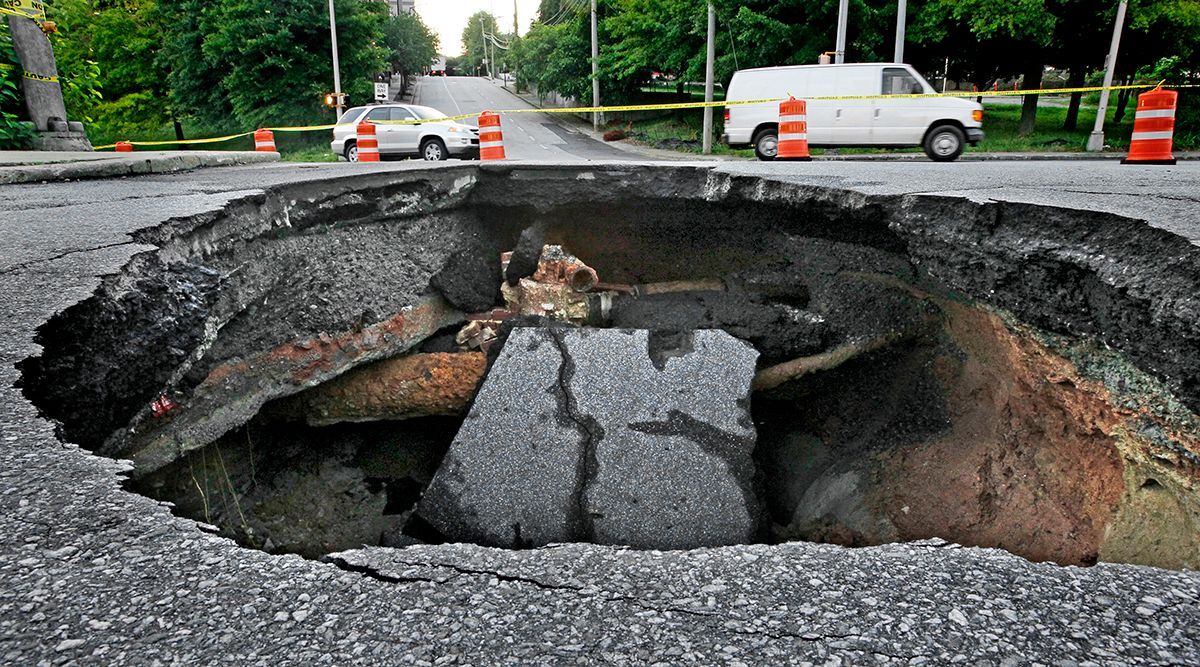
Understanding where sinkholes are most active can help you plan, buy, or build more safely. While there’s no universal citywide sinkhole map, several incidents highlight the problem:
- Piedmont Avenue: Road collapse due to pipe failure
- Martin Luther King Jr. Drive: Emergency shutdown after a sinkhole formed under a bus lane
- 10th Street in Midtown: Sidewalk caved in near a residential complex
You can also reference county GIS systems or check with Sinkhole Experts Near You like Sinkhole Repair ATL for updated repair data across the metro area.
Frequently Asked Questions
